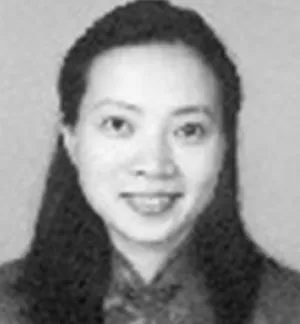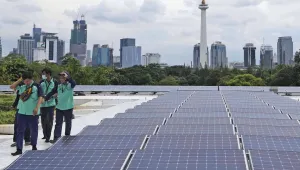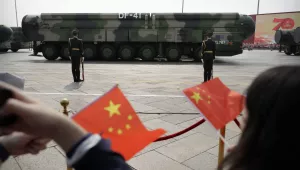China and Taiwan need to increase flexibility in political dialogue. The U.S. should help.
It's time to talk — so let's spare the pandas.
On May 3, mainland China offered to give a pair of giant pandas to Taiwan as a goodwill gift. But that offer may be rebuffed by Taiwan because of the potential political influence that comes with it.
Taiwan leadership, professing suspicion that the offer masks unacceptable interpretations of Taiwan's sovereignty, have said it is "unlikely" the pandas will be accepted, and are calling instead for a tightening of economic exchanges with the mainland. Since even pandas invite hostility, can there be any place for a resumption of dialogue across the Taiwan Strait?
Probably yes — if the two sides abandon their deeply held adversarial framework, and if the United States plays a constructive role.
Although the shadow of war has been looming over the Taiwan Strait for more than 50 years, there was a short period in the 1990s during which the two sides embraced a collaborative mentality in solving their shared problems. Thanks to creative efforts by two negotiation pioneers — Wang Daohan, president of the Association of Relations across the Taiwan Strait in China, and Koo Chen-fu, chairman of the Straits Exchange Foundation in Taiwan, the mainland and Taiwan were able to hold the first high-level cross-strait talk in 1992 and reached informal verbal agreement on the "One China" principle — admittedly, with different interpretations from each side.
The prospect of an easier Taiwan Strait was clouded by the statement of former Taiwan leader Lee Teng-hui in 1999 that redefined cross-strait ties as a "state-to-state relationship." Since this dramatic move toward "Taiwan independence," the guiding principle in cross-strait relations has been "no talks." An era of cross-strait dialogue ended with the deaths of Koo in 2004 and Wang last month. Who will be the next generation of negotiators? Will there be any talks at all?
"No talks" cannot ameliorate the situation in the Taiwan Strait, let alone improve existing economic, cultural and social ties. Meanwhile, there has been a great deal of de facto engagement between the mainland and Taiwanese opposition parties, business circles, and the general public. That actually has been working well, as far as it goes, but it could potentially backfire unless the political aspect is addressed. Lack of political dialogue fuels the tension across the Strait from time to time, increases suspicion about China's military ambitions, and narrows the chances for economic, social and cultural exchanges.
The legacy of Wang and Koo is a good model from which we can benefit. It was a joint problem-solving process led by open-minded negotiators. It was "unofficial" but had direct influence on the leadership in mainland China and in Taiwan. Negotiators were given a free hand to explore and generate creative options without being obliged to make political commitments. The dialogue enhanced the goodwill and understanding between the two sides and did reach some consensus.
It is necessary for Washington to change its role from status-quo guardian to a catalyst for cross-strait communication. Washington's ambiguity toward the "One China" principle does not serve the present situation well because it sends misleading signals to all sides. Supporting the resumption of dialogue across the Strait under the "One China" umbrella can sharpen the signals.
Mainland China has emphasized that under the "One China" principle, everything can be discussed. Washington has the capacity to hold the mainland to that, while influencing Taiwan to be more flexible in order to restart the political dialogue. As the biggest outside stakeholder, Washington could have a constructive rule in facilitating reconciliation. The longer Washington avoids such a role, the greater is the risk of emboldening Taiwan to push for sovereign independence.
People have shown great entrepreneurship on both sides of the Taiwan Strait in engaging with each other. Direct flights across the Strait will start operating soon during the Chinese New Year (which begins Sunday). The same flexibility can be applied to the political dialogue. But the pandas can find a carefree home in Taiwan only if dialogue helps melt the political ice.
Jason Qian is a fellow at the Harvard Negotiation Project of Harvard Law School. Anne Wu is a research fellow at the Belfer Center for Science and International Affairs at Harvard University's Kennedy School of Government.
Wu, Xiaohui (Anne) and Jason Qian. “It's Time for More Strait Talk.” Philadelphia Inquirer, January 27, 2006




